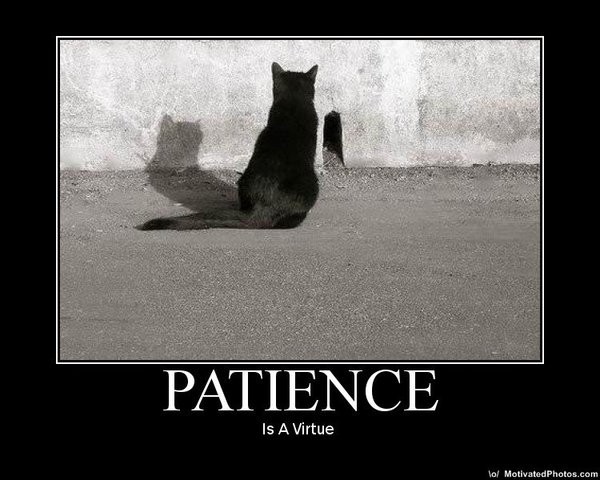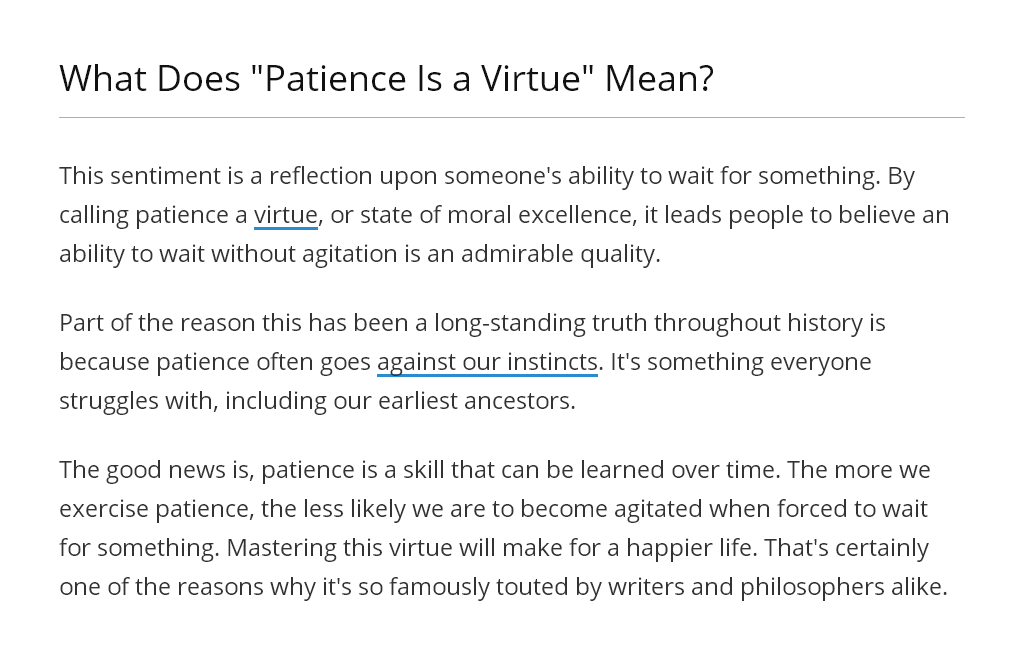"It’s most commonly believed the line originated from the poem, Piers Plowman, said to have been written around 1360 by English poet William Langland, about a man in search of faith. One line in the poem states that “patience is a fair virtue.” "
"The characters include Truth (God), Wrong (Devil), Holy Church, Thought, Wit, Study, Conscience, Liar, Reason, Dowel (do well), Dobet (do better) & Dobest (do best), & the 7 deadly sins. They are lead on a quest by Piers Plowman, chosen due to his state of moral excellence."
"Other research dates it to the 5th century, when poet Prudentius wrote a thousand-line epic poem, Psychomania, describing the conflict between vice & virtue. The main characters were Hope, Sobriety, Chastity & Humility, as they fought against Pride, Wrath, Paganism & Avarice."
"In the 3rd or 4th century, The Distichs of Cato was a collection of proverbial wisdom and morality, becoming the most popular Latin textbook in the Middle Ages. It was considered not only a textbook for learning Latin, but good morals, too...
...Assumed to have been written by Cato the Elder, there is a line in this text that reads, "Of human virtues, patience is most great." While this is a striking statement in defense of patience, Cato often gets overlooked as the originator of this sentiment."

 Read on Twitter
Read on Twitter



